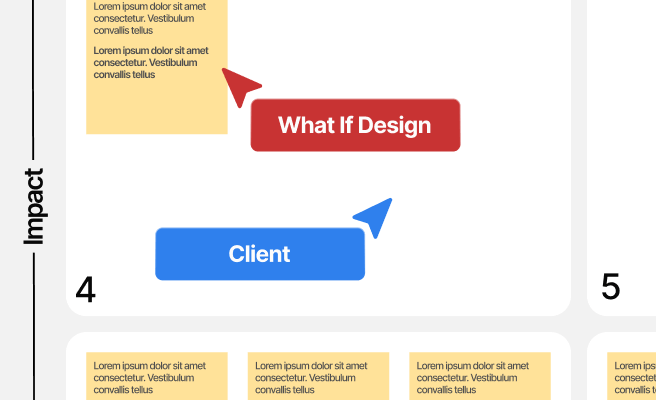Longitudinal Study
<p>A longitudinal study is a research method used to gather data on the same subjects repeatedly over an extended period. This approach allows researchers to detect developments or changes in the target population. By examining how variables evolve over time, longitudinal studies provide detailed insights into long-term effects and trends.</p>
<p>Longitudinal studies are particularly crucial in fields like medicine, sociology, and education, where understanding change over time can lead to more effective interventions and policies. For instance, in climate tech, longitudinal studies can help track the long-term impact of sustainable practices on environmental health.</p>
<h2>Components and Types of Longitudinal Studies</h2>
<p>Longitudinal studies can be broadly categorized into two types: panel studies and cohort studies. Each type has distinct characteristics and usage scenarios.</p>
<h3>Panel Studies</h3>
<p>Panel studies involve repeatedly collecting data from the same set of individuals known as a panel. This type of study is useful for understanding individual changes and trends over time. For example, a panel study might track the career progression of product designers in climate tech over a decade.</p>
<h3>Cohort Studies</h3>
<p>Cohort studies focus on a specific group of people who share a common characteristic or experience within a defined period. This type of study is often used in epidemiology to understand how certain exposures affect outcomes over time, such as the long-term health effects of exposure to air pollution on residents in urban areas.</p>
<h2>Benefits of Longitudinal Studies</h2>
<p>Longitudinal studies offer several advantages:</p>
<ul>
<li><strong>Identifying Patterns:</strong> They help in identifying patterns and sequences of events, which can be crucial for understanding cause-and-effect relationships.</li>
<li><strong>Measuring Change:</strong> These studies are ideal for measuring change over time, providing insights into how specific variables evolve.</li>
<li><strong>Temporal Sequencing:</strong> They allow researchers to establish the temporal sequence of events, which is essential for causal inference.</li>
</ul>
<h2>Challenges in Conducting Longitudinal Studies</h2>
<p>Despite their benefits, longitudinal studies also pose certain challenges:</p>
<ul>
<li><strong>Time and Cost:</strong> They are time-consuming and often require significant financial resources.</li>
<li><strong>Participant Retention:</strong> Keeping participants engaged over a long period can be difficult, leading to attrition and potential biases.</li>
<li><strong>Data Management:</strong> Managing and analyzing large datasets collected over time can be complex and require sophisticated tools.</li>
</ul>
<h2>Real-World Applications</h2>
<p>Longitudinal studies have been used in various fields to gather insights that inform policy and practice. For example, the <a href="https://www.ncbi.nlm.nih.gov/pmc/articles/PMC4697864/" style="color:#2896FF; text-decoration: underline;">Framingham Heart Study</a>, initiated in 1948, has provided valuable data on cardiovascular health, influencing medical guidelines worldwide.</p>
<p>In the climate tech sector, longitudinal studies can assess the impact of new technologies or practices on environmental outcomes over time. For instance, a study might follow the adoption of electric vehicles in a specific region to analyze their long-term effects on air quality and public health.</p>
<h2>Conclusion</h2>
<p>Longitudinal studies play a critical role in understanding how variables change over time. By providing detailed, long-term data, they help researchers and policymakers make informed decisions that can lead to significant advancements in various fields, including climate tech. For organizations and researchers seeking to understand the long-term impacts of their initiatives, investing in longitudinal studies can offer invaluable insights and drive sustainable progress.</p><p>We’re using the power of design to increase the adoption of climate technologies and innovation. View our work in climate to know more on how we can support your vision. <a href="https://www.whatifdesign.co/climate" style="color:#2896FF; text-decoration:underline;">View our climate projects</a>.</p> <p>Increase user engagement that converts your demos into sales. Optimise your UX strategies with our audits.
<p>Fill out the <a href="https://tally.so/r/n97pxQ" style="color:#2896FF; text-decoration:underline;">UX Audit form</a> to get started. Ready to discuss your needs? <a href="https://cal.com/akhilak/what-if-design?duration=25" style="color:#2896FF; text-decoration:underline;">Book a consultation call</a> with us today.</p></p>

Let's scale your impact with great design.
Free consultation, no sales pitch
Thank you! Your submission has been received!
Oops! Something went wrong while submitting the form.
Let’s talk
Nothing great is built alone.
Let’s connect about your vision, our work and how we can collaborate.
Get in touch

